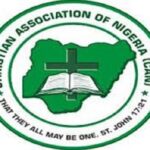The Corporate Affairs Commission (CAC) on one hand and Civil Society Organisations (CSOs) and Non-Governmental Organisations (NGOs) on the other, particularly the Christian Association of Nigeria (CAN), have been at daggers drawn since President Muhammadu Buhari signed into law the Companies and Allied Matters Bill.
The news legislation, known as the Companies and Allied Matters Act 2020 (CAMA 2020), contains new provisions for the regulation of incorporated trustees; a development which the CSOs and NGOs said conferred “too much” power on CAC.
- CAMA: Approach National Assembly, Osinbajo tells aggrieved pastors
- CAMA enlarging government’s powers – CSOs
The Minister of Industry, Trade and Investment, Otunba Richard Adeniyi Adebayo, is optimistic that the new legislation would transform the business environment in Nigeria.
Speaking when he received a delegation from CAC recently, the minister said the implementation of CAMA would help Nigeria move up the ladder of the World Bank’s Ease of Doing Business Index as the law would further dismantle bottlenecks in business registration in the country.
Daily Trust observes that CAMA 2020 empowers the CAC to suspend the trustees of a not-for-profit organisation for mismanagement, lease or even mendacity. This new position may not be unconnected with growing public outcry over excesses of not-for-profit organisations and their trustees.
Section 839 (1) of CAMA 2020 empowers the CAC to suspend trustees of an association and appoint interim managers where it reasonably believes that there is or has been misconduct or mismanagement in the administration of the association; it is necessary or desirable for the purpose of protecting the property of the association; securing a proper application for the property of the association towards achieving the objects of the association, the purpose of the association of that property or of the property coming to the association, and public interest; or the affairs of the association are being run fraudulently.
Sub-Section 2 provides that the trustees shall be suspended by an order of court upon the petition of the commission or members consisting of one-fifth of the association and the petitioners shall present all reasonable evidence or such evidence as requested by the court in respect of the petition.
Sub-Section 2 further provides that the CAC and members of an association have the locus to suspend the trustees, while Sub-Section 3 provides for the hearing of the petition and the appointment of the interim managers by the court with the assistance of the commission.
A non-profit organisation, Socio-Economic Rights and Accountability Project (SERAP), said CAMA 2020 might be the most repressive law in Nigeria.
“We’re studying the Companies and Allied Matters Act (CAMA) 2020 which President Buhari signed into law purportedly to improve business. This legislation may be the most repressive law in Nigeria’s history. Details on our findings and potential legal action later,” CAN revealed on its twitter handle.
Similarly, the General Overseer (GO) of the Redeemed Christian Church of God (RCCG), Pastor Enoch Adeboye, and the President of the Evangelical Church Winning All (ECWA), Rev. Stephen Panya Baba, separately rejected the new legislation.
Rev. Baba said, “We are not happy, and we urge the Federal Government to do the needful to revert this obnoxious law which is totally unacceptable,” and he commended the prompt action of CAN leadership in condemning the law which “has variously been condemned by several church organisations and human rights groups.”
Meanwhile, a review by a company law expert, Samuel Olufowose, reveals another contentious provision in CAMA 2020.
Olufowose said the amended act provided that no suit could be commenced against CAC before the expiration of a period of 30 days after a written notice of intention to commence the suit had been served on the commission by the intending plaintiff and the notice was to state the cause of action, particulars of claim and reliefs sought.
He said the act also empowered the Minister of Industry, Trade and Investment to prescribe by regulations, model articles of association for companies.
However, the expert believes the amended law has benefits for the business environment in the country.
He said, “The CAMA 2020 has been lauded widely since its passage for allowing ease of doing business and enticing SMEs, start-ups and ultimately encouraging innovations.”
Meanwhile, the Registrar General of CAC, Garba Abubakar, said the provisions of the amended CAMA 2020 were in line with global best practice.
Speaking recently in respect of issues raised by CAN and some CSOs on the regulation of incorporated trustees in CAMA 2020, Abubakar said some of the provisions of the new act were modelled from the law guiding the Charity Commission of England and Wales.
He explained that, “There are developments globally on how these associations should be run and regulated. We cannot be different from what is obtained in other jurisdictions. Nigeria is even less strict compared to other jurisdictions.”
The CAC boss said although CAMA 2020 provided for the suspension of trustees of not-for-profit organisations, such action could not be done arbitrarily.
He said the law provided that on suspicion of corruption, mismanagement or in public interest, CAC could receive a petition on a trustee, open an inquiry in which the trustee was given fair hearing, then a decision was made by the CAC board and in turn CAC made recommendation to the Minister of Industry, Trade and Investment for action, which might include suspension.
The registrar general said even in the case of suspension, a trustee still reserved the right to approach a court for redress.
Similarly, Abubakar spoke on the new provision of CAMA 2020 which places a responsibility on banks to report five-year dormant accounts belonging to incorporated trustees to CAC.
He said such accounts could be frozen and funds transferred to similar organisations performing similar functions.
He further said these reforms were put in place to ensure that whatever assets and resources owned by charity associations should be used strictly for the affairs of the association.
He added that, “CAMA applies to all organisations and does not make any distinction. Any association that does not want to be regulated, the trustees should dissolve the association and operate informally. There is freedom of association.”
Daily Trust observes that there is no uniform international regulation for charities and non-for-profit organisations and different countries have legislations that suit their needs.
For instance, there is the Charity Commission for England and Wales for the regulation of charity organisations under the jurisdiction of the High Court’s charity law. It is worth noting that if a charity’s income exceeds £5,000 a year, it must register with the charity commission.
The commission provides guidance for trustees on how they should meet their legal duties and responsibilities and investigates accusations of wrongdoing; and if a serious problem is uncovered, it has power to restrict transactions a charity may enter into; appoint additional trustees; freeze a charity’s bank accounts; suspend or remove a trustee; appoint an interim manager or make a referral for investigation to the police and other law enforcement agencies.
Similarly, in Scotland and Northern Ireland, there is the Office of the Scottish Charity Regulator (OSCR), which ensures that charity organisations are used exclusively for charitable purposes which benefit the public.
In the United States of America (USA), states have discretion over the regulation of charities; even as many states do not impose significant regulatory burdens on charitable corporations, in part, because charities that have special tax status are subject to Internal Revenue Service (IRS).
State of New York charities are regulated primarily by the Charities Bureau and the IRS, with powers to audit charities and to impose penalties and excise taxes on charities that fail to comply with the law.




